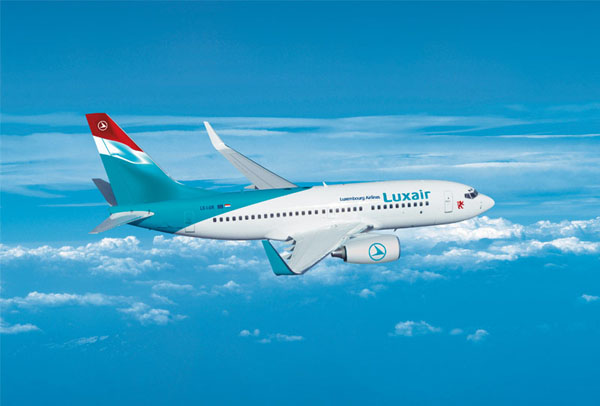
During the fourth tripartite aviation sector meeting, held on Monday, Luxair presented the current situation and its forecasts for 2021.
While it is currently still possible to travel, demand is falling sharply. The health measures introduced in almost all the countries served by Luxair have had an impact on customer behaviour and cancellations are increasing. Between November and December, the airline's flight schedule has been reduced from 209 weekly return flights to 42; the airline also reduced its flights for January to March 2021 by 41% (from 209 to 105). In this context, the airline and the tour operator are striving to offer products and services adapted to the situation and requirements.
Luxair noted a significant number of customers expressing their confidence in the measures taken by the entire travel industry. Last week, some 300 people booked holidays with LuxairTours, taking advantage of the ideal period to travel to the Canary Islands.
Furthermore, to support the mobility needs of its customers, Luxair maintains an optimised flight operation and continues to guarantee the connection of Luxembourg with European and further afield destinations for the period November-December 2020. Luxair will strengthen its flight offer for the Christmas period, notably to Cape Verde, Egypt, Djerba, Austria and Montenegro. The airline stressed that security and flexibility continue to drive all its strategic decisions.
As Luxair plays a decisive role in the economy of the Grand Duchy and the Greater Region, this same connectivity will be enhanced next year by the addition of new destinations, including Usedom, Toulon, La Rochelle and Thessaloniki.
From spring 2021 onwards, Luxair will connect Luxembourg to more than 80 destinations. This is considered an essential service to guarantee the connection of foreign communities in Luxembourg to their home countries, particularly Portugal, Spain and Italy, promote exchanges between the main European economic centres such as London, Geneva, Berlin, Paris and Milan and meet travel demand, which persists despite the health crisis.
Commenting on this unprecedented situation, Gilles Feith, CEO of LuxairGroup, stated that staff were "ready to adapt to this 'new normal'", although "a lot more work" was involved than usual. He explained how customers were booking trips later than normal, "often only 7-10 days in advance", a development which has proven challenging since airlines normally decide "14 days in advance whether [they] fl[y] or not". In such circumstances, "Luxair needs to be on the lookout, track by track, to see if there will be enough demand to fly".
Mr Feith added that prices also required adjustment: "Normally the flight becomes more expensive the closer you get to the departure point. This too had to be adjusted. At LuxairTours, flights often have to be combined in order to be able to fly at all. Unfortunately, we only know this shortly before the flight, depending on the situation". He continued: "Then we also have fewer hotels that are still open and our people have already done over ten advertising campaigns".
Meanwhile, cargo flights are "up to 20% fuller than before", which means 20% more lorries are needed. This in turn requires "more manual work" and there is "a great need for flexibility".
Luxair's CEO concluded: "The solidarity within the company is great and I am proud of the many good people who work at Luxair. [...] The most important actor, however, is still missing in the constellation, and that is the customer. Our client can continue to have confidence in Luxair and therefore Luxair will maintain a minimal network over the winter, even if this does not always make purely commercial sense".








